Phuketwan will probably close in February when the editor, Alan Morison, with his passport impounded and obliged to now use a ''criminal visa,'' will no longer be able to qualify for a work permit in Thailand.
Earlier this week, Andrew Drummond announced on his eponymous site that he hoped to head back to Britain next year - if he can escape the multiplying law suits applied to protect several of Pattaya's leading expat fraudsters.
''Foreign crooks have caught on to the Thai laws,'' he wrote this week. ''They know they can cheat and steal other people's life savings and defy their victims to get their cash back.''
Drummond has become enmeshed in court actions filed repeatedly by the expat rogues he has exposed. Their intention is to slow him down and consume his cash.
A professional journalist with a background of exposing criminals of all kinds, including some of Southeast Asia's most odious expat pedophiles, Drummond's enforced departure next year would be a major victory for evil in Thailand.
An important part of his work in Thailand has been in exposing the circumstances behind the murders of British tourists. He says this is the most rewarding part of his role, helping the families of innocent victims to try to achieve factual accounts, justice and closure.
Yet his own predicament is ''not strong enough to make the newspapers in Britain or elsewhere.''
Morison and his Thai colleague, Chutima Sidasathian, who exposed the ''pushbacks'' of Rohingya boatpeople from Thailand in 2009, have been charged by the Royal Thai Navy over a paragraph republished word for word from a Reuters special report in July last year.
The news agency later won a Pulitzer Prize for its coverage, including that paragraph.
Thailand's Computer Crimes Act and criminal defamation are also being used to silence migrant worker activist Andy Hall, who faces a series of law suits and a bid for compensation of $10 million brought by Thai pineapple processor Natural Fruit.
Workers' advocate Hall was, like the journalists, merely doing his job when he reported the findings of a Finnwatch team that examined the treatment of migrant workers at Thai factories.
Yet as a resident of Thailand, he alone was singled out by the company for prosecution.
Drummond has been forced to use the same iniquitous laws to countersue the rogues and fraudsters. But like Hall and Morison, he believes the criminal libel and computer laws in Thailand are flawed and ''inbuilt to support the crooks.''
''It's just so appalling,'' he said, encouraged by the supporters who have given to his cause but disappointed that the issue is given so little coverage by news organisations in Britain especially.
Hall, on the other hand, has recently gained considerable support from international unions because his case emphasies the way in which migrant workers are poorly treated in Thailand to serve Western markets.
By daring to defend principles and to expose wrongdoers, Morison and Drummond have also been targetted by those who don't like what they write.
Next year, as all English-language newspapers in Thailand deal with the retreat from print which is now reducing the capacity for serious journalism everywhere, online outlets andrew-drummond.com and Phuketwan may become the first casualties in Thailand.
Hall, Drummond and Morison are now watching each others' cases closely - and hoping that the rest of the world is, too.

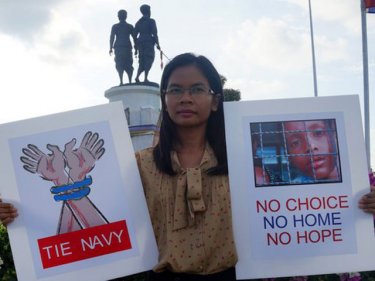





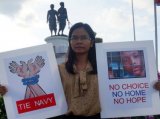

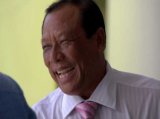


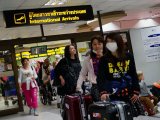



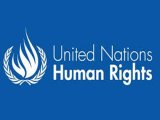



The spineless, do-nothing approach taken by the British Embassy is particularly annoying in Drummond's case. He has done great investigative journalism for years and his work has led to a number of cases being prosecuted fairly when it looked like the bad guys were going to win.
If the people in his cases get away with what they are doing, we all might as well pack up and leave like Andrew.
Posted by Arun Muruga on October 8, 2014 20:28